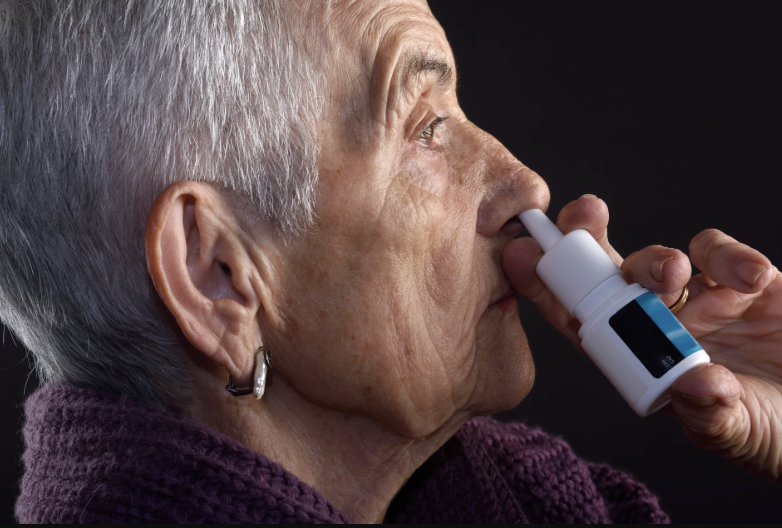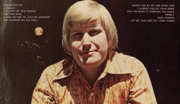
“Oh, it’s just a cold!” A runny nose here, a sore throat there, and a quick stop at the pharmacy for something to help us breathe again. But what if the very medicine you count on for relief could send you straight to the emergency room?
The cold season comes every year, and many of us rely on familiar over-the-counter remedies to get through it. Yet doctors are sounding the alarm on one of the most widely used cold fixes—one that may do more harm than good, especially for older adults or anyone managing multiple prescriptions.
As harmless as it may seem, that small pill or spray in your medicine cabinet could pose serious risks if taken the wrong way or even combined with something else.
The hidden danger behind popular decongestants
When you’re battling a cold, it’s only natural to want relief—fast. Decongestants like pseudoephedrine (Sudafed) and phenylephrine promise to shrink those swollen nasal passages, letting you breathe easier and (hopefully) get some much-needed sleep. They’re everywhere: in pills, syrups, and those little bottles of nasal spray that seem to multiply in people’s medicine cabinets.
But Dr. Matthew Zuckerman, an ER physician and associate professor at the University of Colorado Anschutz, warns that these medications are a double-edged sword. Every year, people end up in the hospital because of misuse of decongestants, and the risk is even higher for older adults, folks with chronic health conditions, and anyone taking multiple medications.
"Two big reasons decongestants send people to the hospital each year include misuse and interactions"
How they work—and why they can cause problems
Decongestants work by constricting blood vessels in your nose, reducing swelling and drainage. Sounds great, right? But those same effects can ripple through the rest of your body, raising blood pressure, speeding up your heart rate, and even triggering anxiety or insomnia. For people with heart conditions, high blood pressure, or glaucoma, or those on certain antidepressants or stimulants, this can be a recipe for disaster.
And let’s not forget the sneaky way these drugs can hide in “multi-symptom” cold remedies. It’s all too easy to accidentally double up on decongestants—or mix them with other medications like acetaminophen, risking an accidental overdose.
Also read: ER doctors warn: Five everyday habits that could land you in the hospital
The biggest mistakes that send people to the ER
1. Misuse: Taking more than the recommended dose, using nasal sprays for more than three days, or “stacking” multiple cold products with the same active ingredient. Labels can be confusing, and it’s easy to lose track, especially when you’re feeling foggy from a cold.
2. Drug Interactions: Decongestants can clash with medications for high blood pressure, heart rhythm problems, depression, ADHD, and more. The effects are severe headaches, chest pain, dangerously high blood pressure, or irregular heart rhythms.
And here’s a twist: using nasal decongestant sprays for more than three days can actually make your congestion worse, a phenomenon called “rebound congestion.” You might find yourself in a vicious cycle, reaching for more spray as your symptoms spiral.
Common Medications That Interact With Decongestants
High blood pressure medications
Heart rhythm medications
Glaucoma treatments
Depression medications (especially MAOIs)
ADHD medications and other stimulants
Blood thinners (when combined with other cold medicine ingredients)
When to get emergency help
It’s crucial to know when a cold remedy has crossed the line from helpful to harmful. Dr. Zuckerman urges you to call 911 or head to the ER if you experience:
- Chest pain, chest pressure, or a pounding or irregular heartbeat
- Very high blood pressure readings or a fast heart rate that won't slow down
- Severe headache, confusion, vision changes, or fainting
- Shortness of breath, severe anxiety or agitation, or tremors
- Inability to urinate
- Signs of severe allergic reaction, including swelling of lips and tongue, trouble breathing, or widespread hives
Also read: These everyday spices could help kill viruses and beat colds, experts claim
Safer ways to ease congestion without the risk
The good news? You don’t have to suffer through your cold or risk a trip to the ER. There are plenty of safer, doctor-approved ways to ease your symptoms:
Saline Nasal Sprays or Irrigation: These rinse out mucus and allergens, and are safe for frequent use.
Humidified Air and Steam: A humidifier or a steamy shower can help thin mucus and soothe irritated nasal passages.
Nasal Strips: These handy strips physically open your nostrils, making it easier to breathe without any medication.
Fluids, Fluids, Fluids: Staying hydrated helps thin mucus and keeps your throat comfortable.
Second-Generation Antihistamines: If your congestion is allergy-related, medications like cetirizine (Zyrtec) or loratadine (Claritin) can help—without the drowsiness of older antihistamines.
Intranasal Steroid Sprays: For allergy-driven congestion, sprays like fluticasone (Flonase) can reduce inflammation safely when used as directed.
A word of caution for older adults
It's best to talk to your doctor to ensure you're taking medications that are safe and effective based on your personal health needs. The goal is to get you on the mend as soon as possible, not make things worse.
While over-the-counter medications don't require a prescription, that doesn't mean they're appropriate for everyone. This is especially true if you have ongoing health conditions or take multiple medications.
Don't hesitate to call your healthcare provider if you're unsure about any medication, even if it seems like a simple cold remedy. A quick phone call could prevent a trip to the emergency room.
Key Takeaways for Safe Cold Medicine Use
- Always check active ingredients before taking any cold medication
- Keep an updated list of all medications and supplements you take
- Consult your pharmacist or doctor before combining cold remedies
- Choose single-ingredient products when possible
- Never exceed recommended doses, even if you're not feeling better
- Try natural remedies like saline rinses and humidifiers first
- Seek immediate medical care for chest pain, severe headache, or difficulty breathing
Read next:
- New study warns popular sleep aid may significantly increase risk of heart failure
- A hidden crisis emerges: Why seniors are becoming unexpected victims of America's deadliest drug combinations
- Common painkillers could be making antibiotics less effective, scientists warn
Have you ever had a bad reaction to a cold medicine? Do you have a tried-and-true home remedy that helps you get through the sniffles? Or maybe you have questions about which over-the-counter products are safest for you?






